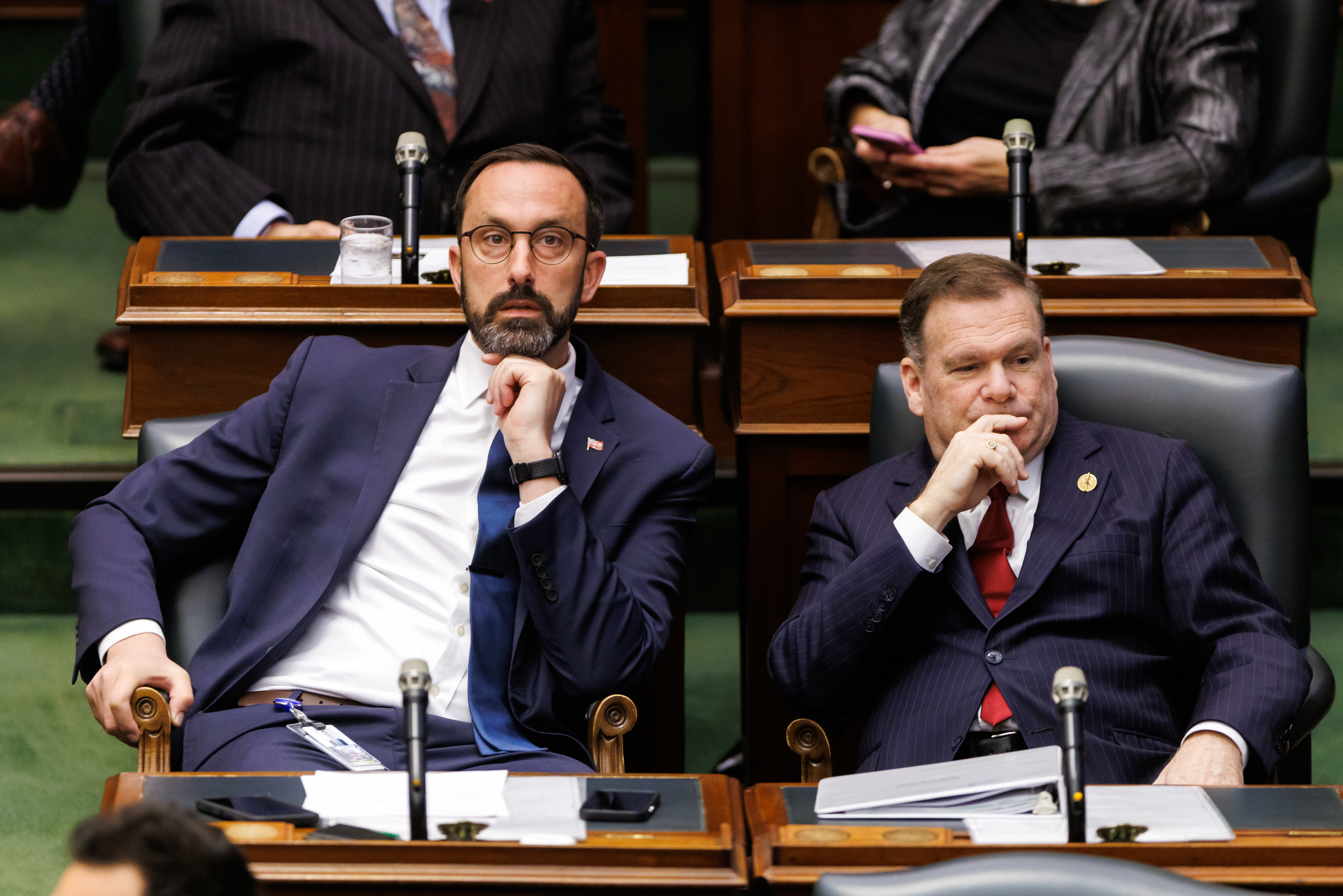As Ontario’s public colleges continue to struggle with massively reduced revenue from international students, the Ford government says it is taking a detailed look at how it funds post-secondary education.

The province’s public colleges and universities have endured two years of cuts and layoffs since a federal cap on the number of international students was introduced and then tightened.
Shortly after the Progressive Conservatives won the 2018 election, they cut college tuition by 10 per cent and then froze it, with public colleges relying increasingly on international students to make up the shortfall.
Before the cap came into place, Ontario colleges were drawing an average of roughly 30 per cent of their revenue from international students.
Minister of Colleges, Universities, Research Excellence and Security Nolan Quinn recently confirmed that the freeze would stay in place until at least the end of the 2026-27 academic year.
Story continues below advertisementPressed repeatedly at a committee meeting, Quinn would not say whether he would raise fees the year after his committed cap ends.
 1:49
Ontario plans to release delayed EQAO results next week, after ‘deep dive’
Previous Video
Next Video
1:49
Ontario plans to release delayed EQAO results next week, after ‘deep dive’
Previous Video
Next Video
The NDP’s critic for colleges, universities, research excellence and security, Peggy Sattler, said the lack of long-running commitment was a concern.

Get daily National news
Get the day's top news, political, economic, and current affairs headlines, delivered to your inbox once a day. Sign up for daily National newsletter Sign Up By providing your email address, you have read and agree to Global News' Terms and Conditions and Privacy Policy.“When I asked about possible tuition hikes, he refused to rule them out,” she said in a statement.
“That is deeply concerning. Ontario already provides the lowest per-student funding in Canada, and instead of taking responsibility to fix that, this government seems prepared to shift more costs onto students.”
Quinn promised, however, it was not business as usual for the post-secondary sector, saying he is in the midst of a potentially major review of the funding formula for publicly assisted colleges and universities.
Story continues below advertisement“We’ve been meeting all summer with our stakeholders — through the 47 publicly assisted colleges and universities, understanding where the costs have changed,” Quinn said at a recent news conference.
Trending Now-
![]() Guilbeault resigns from cabinet after Carney signs Alberta pipeline deal
Guilbeault resigns from cabinet after Carney signs Alberta pipeline deal
-
![]() Father charged with child abuse, torture after taking kids on winter hike in Utah
Father charged with child abuse, torture after taking kids on winter hike in Utah
Quinn added that a key area of reviews would be “weighted grant units,” an area of the formula he said represents the “funding given toward a specific program.” He said changes to that part of the formula would be major.
“It’s been over a decade since we’ve really looked at our funding formula review, and we’re looking at all aspects of it and understanding the costs have changed,” he said.
More on Toronto More videos- Toronto woman serving life sentence admits role in 2006 axe murder
- ‘I broke out laughing’: Ford responds to concerns speed signs are too big for poles
- Brampton TTC operator, father killed in shooting remembered as ‘kind, warm, helpful’
- Ontario signs agreement with First Nation to speed up Ring of Fire road
Those in the sector say a major change can’t come soon enough.
In a recent statement, Colleges Ontario said its members had already cut $1.8 billion, suspended 600 programs and shed 8,000 jobs.
“This further destabilizes colleges in Ontario and the communities they serve, underscoring the urgent need for Ontario to complete its funding formula review and respond to federal policies,” the organization wrote.
Meanwhile, the Council of Ontario’s Universities said its members were projecting $265 million in deficits for the current year and called for a number of funding increases.
“Ensuring the financial sustainability of Ontario’s universities is critical to the province’s economic competitiveness and prosperity,” the council wrote in a recent statement.
Story continues below advertisement“By increasing operating funding – alongside universities’ continued commitment to increased efficiencies – we can ensure Ontario is prepared not only to weather economic uncertainty but to lead in the industries that will define its future prosperity.”

 Why Ontario education minister is determined to overhaul how school boards work
Why Ontario education minister is determined to overhaul how school boards work
 Focus Ontario: Education Overhaul
Focus Ontario: Education Overhaul
 Guilbeault resigns from cabinet after Carney signs Alberta pipeline deal
Guilbeault resigns from cabinet after Carney signs Alberta pipeline deal
 Father charged with child abuse, torture after taking kids on winter hike in Utah
Father charged with child abuse, torture after taking kids on winter hike in Utah
 Focus Ontario: Education Overhaul
Focus Ontario: Education Overhaul
 Ontario passes Bill 33, shifting power from school boards to province
Ontario passes Bill 33, shifting power from school boards to province
 Fun Science: Electrolyte chemistry
Fun Science: Electrolyte chemistry
 87-year-old graduates from University of Saskatchewan
87-year-old graduates from University of Saskatchewan

